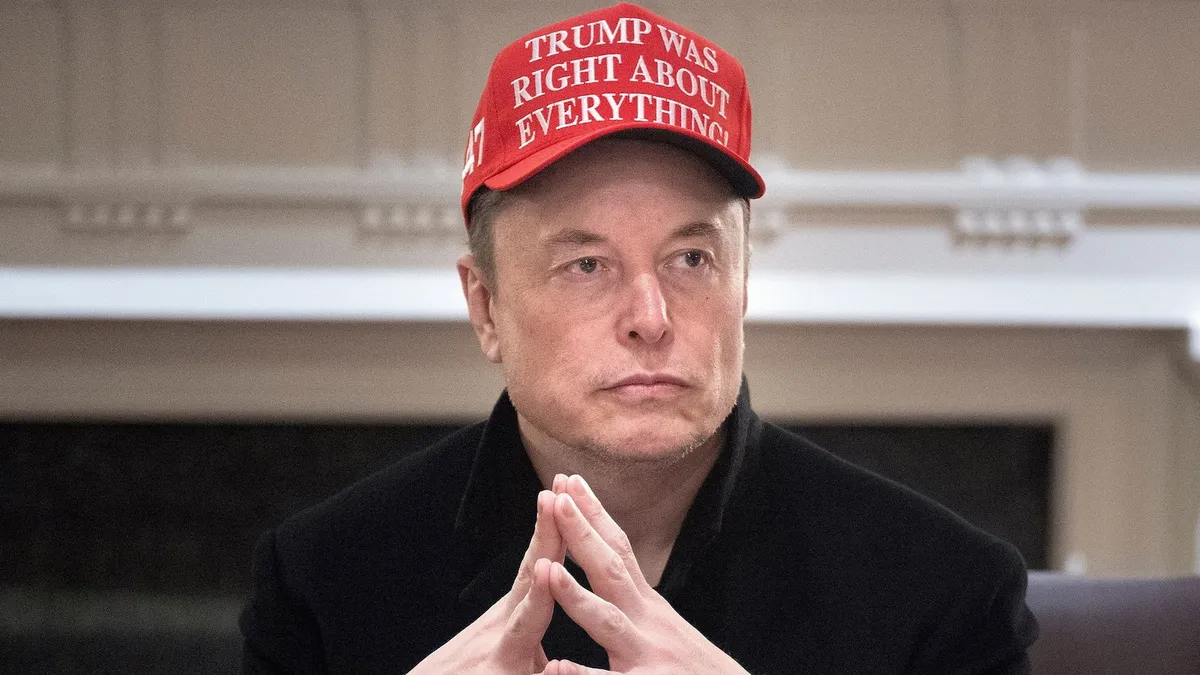
In a surprising turn of events, billionaire entrepreneur Elon Musk downplayed the significant defeat of the conservative candidate in the Wisconsin Supreme Court election, despite his earlier warnings that the fate of Western Civilization hinged on the outcome. Musk, who has been a prominent figure since joining President Donald Trump’s administration as the head of the Department of Government Efficiency, took to social media to express that he “expected to lose” after a hard-fought campaign.
Musk had heavily invested in the Wisconsin Supreme Court race, with his political groups pouring over $20 million into the campaign of conservative candidate Brad Schimel. This financial backing saturated television and digital platforms like Google and Facebook with ads aimed at rallying support. Additionally, Musk deployed a ground team across Wisconsin to maximize voter turnout and even made a splash at a rally by personally handing out two $1 million checks while sporting a cheesehead hat.
Despite these efforts, Schimel suffered a defeat potentially by double digits, marking a significant political setback for Musk and raising questions about his future role in Republican campaigns. Observers are now left wondering how eager the GOP will be to embrace Musk’s involvement in upcoming races, particularly the 2026 midterms.
According to insiders, Musk’s political team entered the Wisconsin race fully aware of the challenges ahead. They anticipated that Democrats would target Musk directly, which led to a strategic decision to confront criticisms head-on rather than allowing them to go unchallenged. In the final days leading up to the election, warning signs emerged as internal memos indicated Schimel was trailing Susan Crawford, the liberal candidate, by a significant margin. This prompted Musk to ramp up his media presence, including multiple livestream events and an interview on Fox News.
In the wake of Crawford’s victory, Democrats are eager to capitalize on this win by portraying Musk as a liability for both Trump and the Republican Party. Senate Majority Leader Chuck Schumer stated that Schimel’s loss served as a clear referendum against Musk, asserting that voters sent a strong message that “our Democracy is not for sale.” Meanwhile, Illinois Governor JB Pritzker, who also contributed over $1 million to the Democratic Party of Wisconsin, remarked, “Elon Musk is not good at this.”
Political strategist Patrick Guarasci, who played a key role in Crawford's campaign, highlighted that confronting Musk’s political ambitions directly was crucial for Democratic success. “We didn’t back down from a fight when Elon Musk got into this race,” Guarasci noted, indicating that this approach could be a valuable lesson for Democrats on a national scale.
Despite the setback in Wisconsin, Musk remains determined to influence future Republican campaigns. Supporters argue that he played a pivotal role in Trump’s previous success, particularly in swing states like Pennsylvania. Trump himself praised Musk’s contributions at a rally, stating, “He knows those computers better than anybody. All those computers, those vote-counting computers, and we ended up winning Pennsylvania like in a landslide.” As Musk continues to navigate the political landscape, his commitment to Republican causes remains steadfast, setting the stage for future electoral battles.